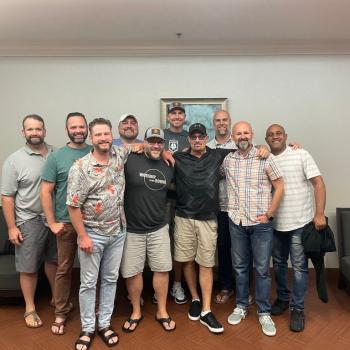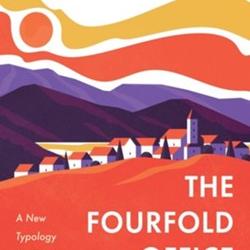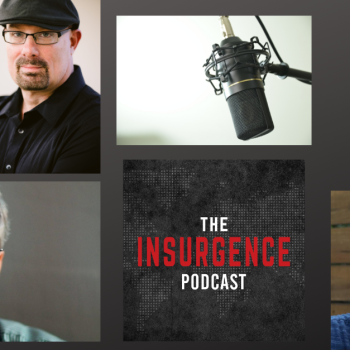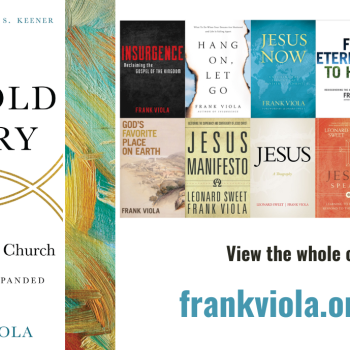Robert Hutchinson has come out with a new book entitled The Dawn of Christianity. The subtitle is “How God Used Simple Fishermen, Soldiers, and Prostitutes to Transform the World.”
The book tells the story of how the first followers of Jesus survived the terror and despair of witnessing the one they knew to be the messiah—God’s agent for the salvation of the world—suddenly arrested, tried, and executed. Soon after Jesus’ death, his relatives and closest followers began hearing reports that Jesus was alive again—reports that even his most loyal disciples at first refused to believe.
I caught up with Robert recently to discuss his new book.
Enjoy!
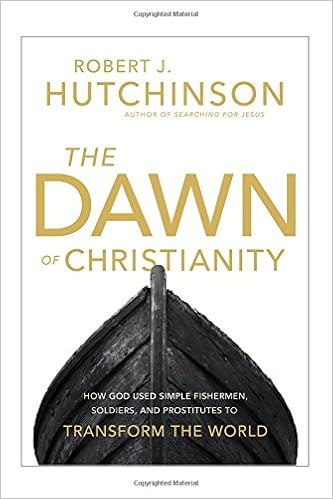
Instead of asking, “what is your book about,” I’m going to ask the question that’s behind that question. And that unspoken question is, “how are readers going to benefit from reading your book?”
Robert Hutchinson: I think readers of The Dawn of Christianity will benefit by reading a fresh retelling of the birth of Christianity, one that fills in many of the details left out of the New Testament but which we have discovered through archaeology and other sources, such as the writings of the first-century Jewish historian Flavius Josephus. We’ve all heard the Gospel versions of these events so many times that people can become tone-deaf and not really hear just how shocking and life-changing these events really were for the people who lived through them but also for us.
By taking a modern journalistic approach and adding the details we now know about Jerusalem and the political and economic conditions of Roman-occupied Israel, I am trying to reawaken people to a very dramatic, history-altering story – one that changed the world utterly and continues to impact us today.
There are so many books on the market about the historical Jesus, the early church, and the beginning of Christianity, what was it that motivated you to write this book and add to the number?
Robert Hutchinson: Well, there are many books on the historical Jesus and the early church, but many tend to be written for academic audiences and can be a bit technical. I felt that the time was right to retell the history of the early Jesus movement by drawing upon latest research from top Christian and secular scholars but without referring to them too much or really much at all. Academic books tend to focus on the debates among the scholars about different theories but what people want is the story itself.
They want to know what really happened with Jesus, why he was crucified, what actually happened on Easter, and how the early Jesus movement got started with the event we know as Pentecost. I wrote an earlier, most academic book on the scholarly debates – Searching for Jesus: New Discoveries in the Quest for Jesus of Nazareth (Nelson, 2015) – and in a sense this book, The Dawn of Christianity, is my attempt to apply what I learned writing the earlier book and use those discoveries in re-telling the story of the birth of Christianity.
Give us five discoveries you made in your research for the book that surprised your or impressed you. Things you didn’t know beforehand.
Robert Hutchinson: Just five? One thing that really surprised me was how much we have to revise our understanding of Jesus’ passion based on recent archaeological discoveries. For example, both archaeologists and Christians have long believed that Jesus was interrogated by Pilate in the Antonia Fortress, a tower that loomed over the northeast corner of the Temple mount complex. But in 2015, archaeologists announced the definitive discovery of Herod the Great’s old palace near Jerusalem’s Jaffa Gate that better fits the descriptions in the Gospels. That means that the traditional Via Dolorosa, or Way of the Cross, is probably obsolete.
The second thing that surprised me was how much we really know about first-century Jerusalem because so many of the ancient structures still exist – such as the Rabbi Steps on the southern wall where Jesus likely debated the Pharisees and spoke to enormous crowds during his last three or four days in Jerusalem.
The third thing was just how quickly persecution against Jesus’ followers broke out, one of the reasons why the Jesus movement quickly spread out to Samaria and as far north as Antioch and Damascus.
The fourth thing, related to that, was Saul of Tarsus’s reasons for attacking the early community – a development described by those scholars, such as Richard Bauckham and Larry Hurtado, who say that outright worship of Jesus began virtually immediately.
The fifth thing that surprised me was the chronology. I am now completely convinced that John’s account is almost certainly correct – that it is highly unlikely Jesus would have been executed on the first day of Passover. Thus, I believe he was crucified on the Day of Preparation for both Passover and the Sabbath that day – as likely died just as the lambs were being ritually slaughtered in the Temple, their blood caught in special golden goblets used just for this purpose by the priests and poured out on the high altar of the Temple. This eerie “coincidence” was not lost on early Christians who immediately saw Jesus as the Agnus Dei, the lamb of God, whose blood was poured out as a sacrifice for humanity.
The sixth thing – just one more! – is how quickly the Jesus movement made overtures to non-Jews such as the Roman centurion Cornelius, surely a sign, for me at least, that Jesus intended his followers to quickly take his message of God’s kingdom beyond the House of Israel to all nations.
What do you believe is the most compelling aspect of the Jesus story that will arrest 21st-century Americans?
Robert Hutchinson: Well, unlike many Christian writers, I write for all people – both Christians and non-Christians, believers and skeptics, people of all denominations. The best way I can explain what happened with Jesus that will make sense to most people is that Jesus was a radical Jewish prophet who announced, proclaimed and inaugurated a new era in human history – one in which the Creator of the Universe was remaking human beings and human communities the way he intended from the very beginning.
This message of God’s kingdom spread like wildfire throughout the eastern Mediterranean and was a call for personal and community renewal that was threatening to both the Jewish religious establishment and to the pagan religious establishment. It also was a spiritual revolution that changed the world. I believe that Jesus understood his destiny was to proclaim this radical message of the kingdom in the very heart of his society, the Temple in Jerusalem.
He knew that doing so would almost certainly get him killed and yet he did it anyway – he gave his life, as he told his followers, as a ransom for many. In my book, I claim that Jesus could have escaped at the last minute in the Garden of Gethsemane. It would have been a short climb up the Mount of Olives, and, under cover of darkness, Jesus could easily have slipped away to Perea, across the Jordan, and then disappeared. But he didn’t. He decided to see things through to the end. He really did give his life for humanity. That isn’t just something Christians made up but something you can see in the details of the story itself.
Which chapter in the book do you believe to be the most powerful and why?
Robert Hutchinson: I like my chapter on the crucifixion. Thanks to scholars such as Martin Hengel and recent medical research, we know a lot more about Roman crucifixion practices than we once did. And the history as told in the Gospels fits that knowledge to a T. Contrary to what Bart Erhman, John Dominic Crossan and other skeptics claim, the Romans did nothing in secret. The whole point of crucifixion was to make a public spectacle of a seditious criminal.
They crucified people along the main roads leading into Rome and allowed people to talk with the condemned men, just as is portrayed in the Gospel accounts. Thus, the idea that the early followers of Jesus had no idea what happened to his body is ludicrous. Half of Jerusalem probably watched the crucifixion from the high ground along Jerusalem’s western wall and saw everything. In addition, we now know that, again contrary to what skeptics claim, Pilate was very worried what the Jewish authorities might tell his superiors in Rome – we know this from a letter written by the Jewish philosopher Philo, a contemporary of Jesus – and thus would be inclined to honor Jewish sensibilities by taking down the bodies of criminals so as not to defile the Passover feast.
What do you hope readers will walk away with after they finish your book?
Robert Hutchinson: As a Christian but also as an author of popular history, I hope people walk away realizing that Jesus of Nazareth was a real person – a courageous, charismatic prophet who inspired thousands of real people — with a real mission that ended up changing history. This really happened… and what Jesus did still matters. As a Christian, I also believe he was much more than this but as a writer of history I can say Jesus was the most important person who ever lived and his story still electrifies and transforms the world. It really is the greatest story ever told – and it deserves to be retold in every era. That is what I am trying to do.
Order The Dawn of Christianity on discount.



